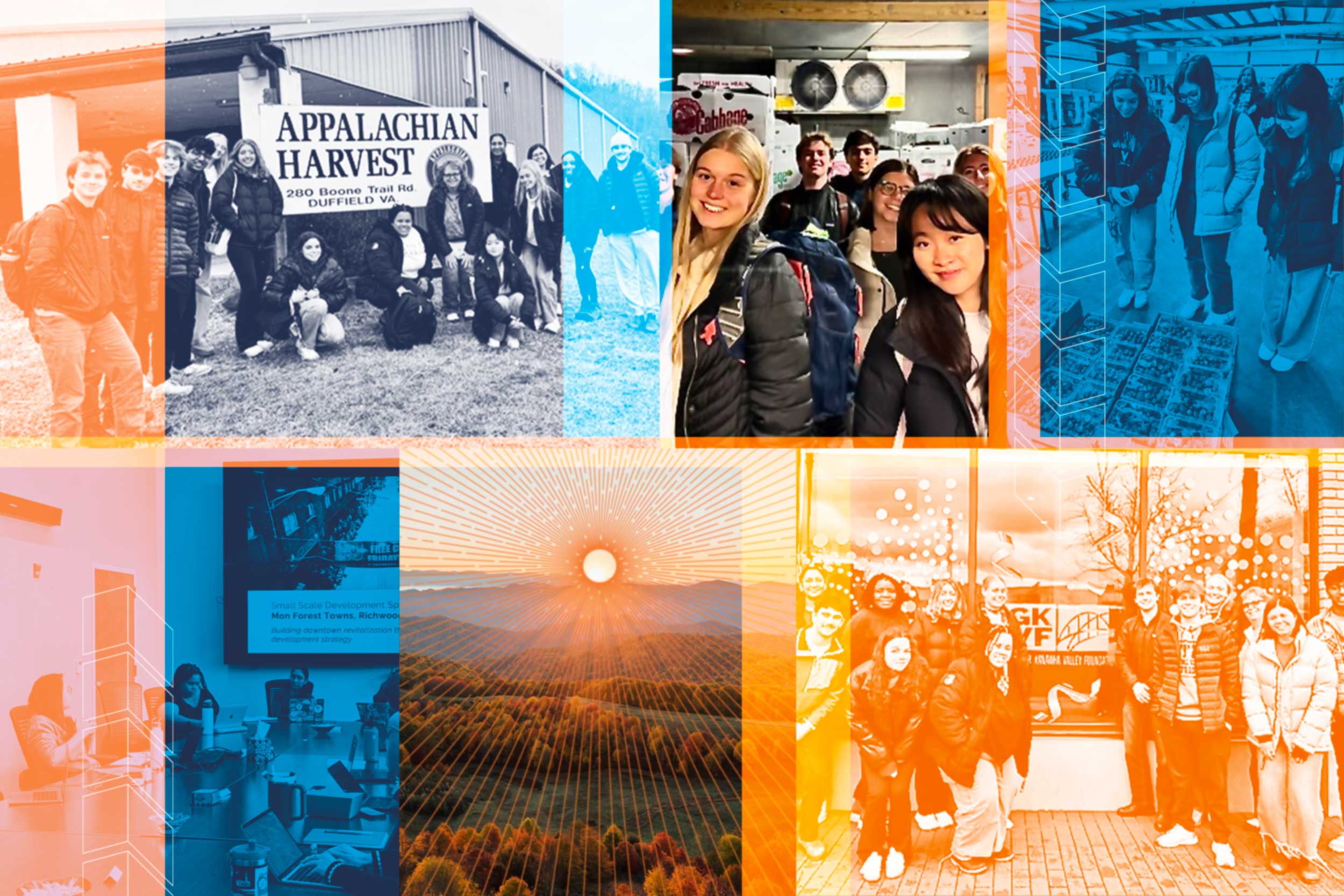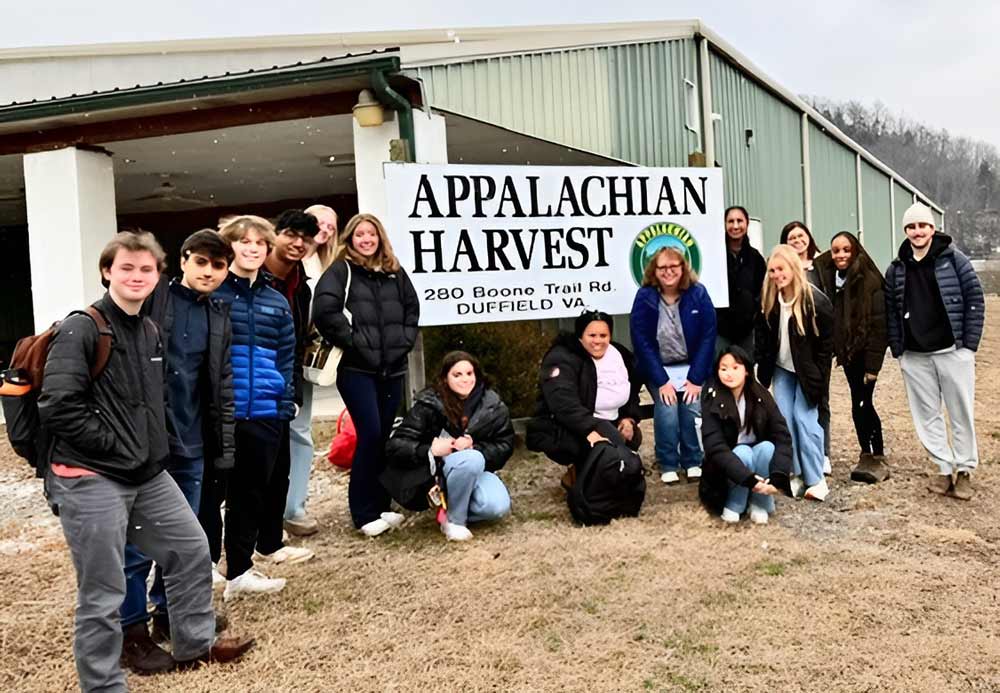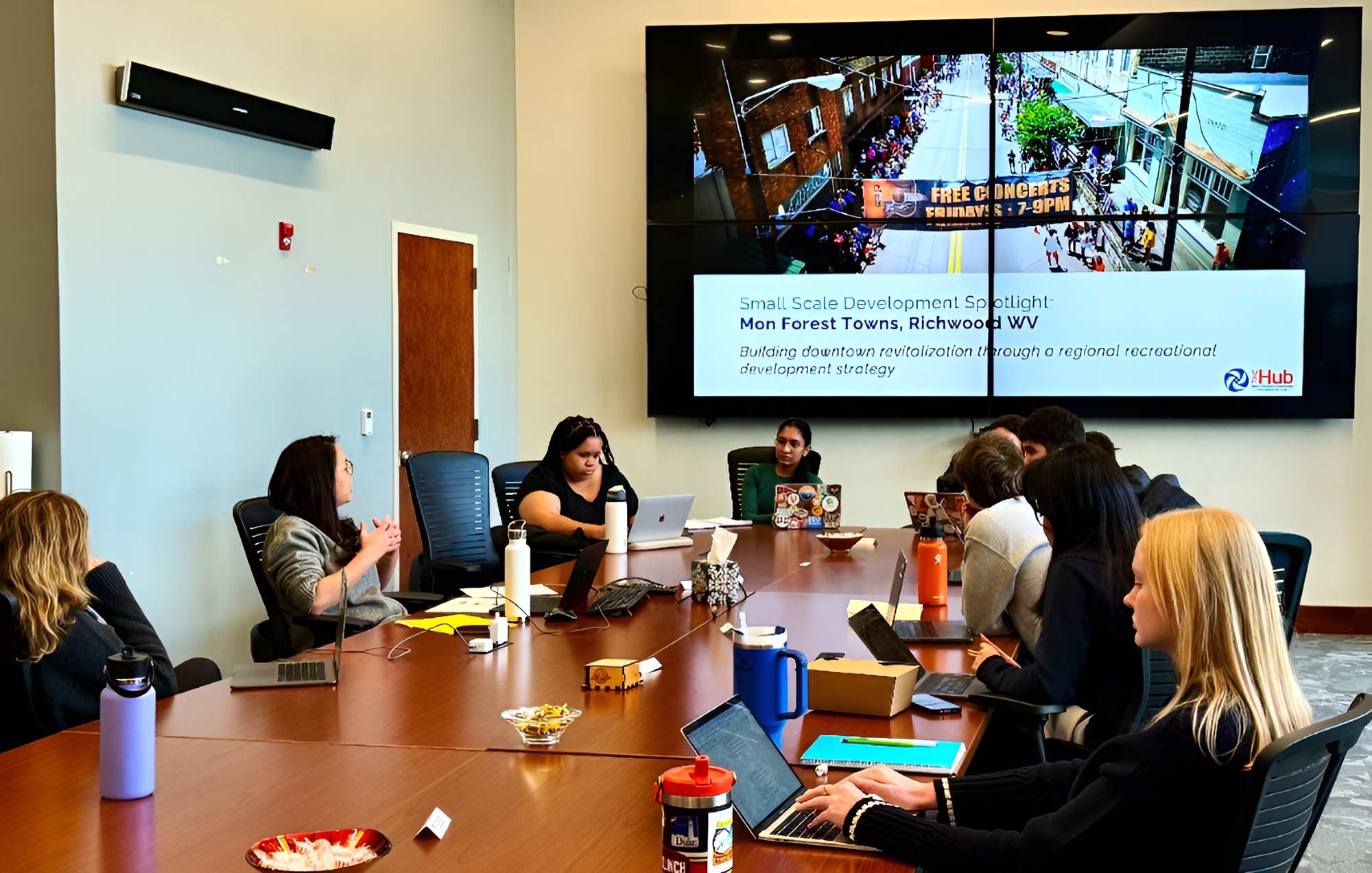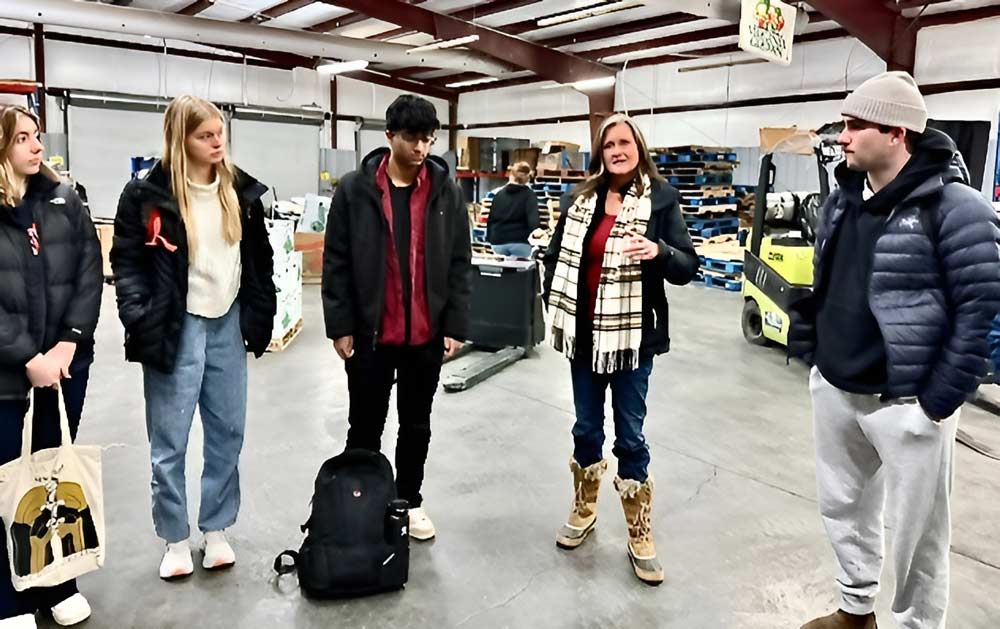Randolph, the deputy director of the Cassiopeia Foundation, a private charitable foundation, and managing director of Purple Tiger Impact, an investment fund, taught Impact Investing in Action: Appalachia for the fifth time at UVA’s Batten School of Leadership and Public Policy. She works with Christine Mahoney, a public policy and politics professor at the Batten School.
The course was conducted during a bus trip through parts of Appalachia – Virginia, West Virginia and Kentucky – where students could talk with local officials, business operators and investors leading the region’s revitalization. Richard and Donna Tadler, UVA alumni who work in private equity, underwrote the trip.
“For some students, especially the business students, they’re hearing impact investing, and they’re thinking ‘venture capital with values,’” Randolph said. “On the ground, in these communities, students see how public policy can lay the foundation for future investment, but leave many businesses still struggling to access traditional financing. Impact investors who evaluate more than just financial returns are playing a large part in the region’s economic transition.”
They also learn that there is no fixed definition of impact investing.
“Students agree there has to be an intention of positive social, environmental and financial returns,” Randolph said. “But many also say that it must be measurable, have an intention and a process to measure from the onset and be able to prove it afterward. That sounds wonderful, but where’s the infrastructure in Appalachia to measure it? And who pays for it?”
According to Randolph, it is not simple.
“What they begin to learn is that there’s a complexity in communities that haven’t had traditional access to capital that requires a steady progression across that capital spectrum. And, they see firsthand, it is possible.” she said.
“We were able to meet with local governments, such as the mayor in Hazard, Kentucky,” said London Tuma, a third-year global sustainability student in her first year of an accelerated master’s program at Batten. “We were able to meet with different entrepreneurs and with leaders of foundations that do a lot of different types of investing, as well as people who work in community development finance.”
The course also helped Tuma recognize and overcome some of the stereotypes she held.
“I wasn’t giving the people here enough credit for how much work they’re doing on their own,” Tuma said. “They’re not getting the support and the resources that people are receiving in urban areas who experience similar poverty struggles. Their creativity and resilience and community have been astounding. It taught me that I have some remaining biases to work through.”
Owen Kitzmann, a third-year student from Charlottesville majoring in government in the College of Arts & Sciences and public policy at the Batten School, had a broad understanding of Appalachia from various readings. The trip, however, made things real for him.
“I learned a lot by interacting with people who live in Appalachia,” he said. “It’s not necessarily the academic readings that we were assigned or the papers we wrote, but it’s being there, getting a feel for the area, walking the streets or seeing the dilapidated housing, or seeing the people who are suffering from drug addiction. That’s what you learn.”
Randolph wants students to come away with an understanding of how financing businesses in Appalachia works, with multiple levels of funding. Especially when there are impact investors are willing to sacrifice some financial returns to help communities bring about the changes they seek.
Randolph said, “To rebuild a broken economy, you must have multiple layers of interventions.” In Hazard, students learned about a housing organization that helps build houses and connects people to low-interest loans.
“The students also learn there’s a significant amount of predatory lending,” she said. “People with poor credit ratings are not able to access those low interest rates because of the predatory lending, so another organization works with them to provide credit counseling.”
“I've learned that it's viable to invest in these communities where you can also make your money,” Kitzmann said. “Therefore, it being a viable investment in the traditional financial sense, it’s also an amazing investment in the social sense.”













